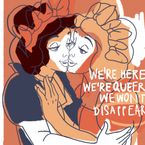Climate change versus working conditions and cross-border trade wars
According to a consultancy company – Autonomy report, by the end of this decade, ⅔ of UK workers could be working in extreme heat (when temperatures exceed 35°C). The UK has no legally defined maximum working temperature. In the US, it is recommended that offices are kept between 20 and 24.4°C; in Spain, according to the law, you should not work when the room temperature exceeds 27°C.
What happens when a cold wave suddenly hits a city unprepared for the vagaries of the weather? “The Washington Post has produced a simulation of the fictional city of Iceburgh, affected by failures that have occurred somewhere in the world. These are catastrophic failures of the fundamental pillars of the city’s infrastructure, from power stations to the electricity grid and water supply to car, rail and air transport and the structures of buildings, roads and bridges.
To mitigate the effects of climate change, countries are pursuing different industrial and trade policies, leading to international disagreements. This threatens more frequent cross-border trade wars in the future. Long-standing allies such as the US and Europe are pitted against each other. The most significant bone of contention recently was new tax reliefs on North American-made clean energy vehicles and equipment. European officials have called the decision a “job killer” and expressed concern that Europe would fail to compete with the US on new investments in batteries, green hydrogen, steel and other industries.


























